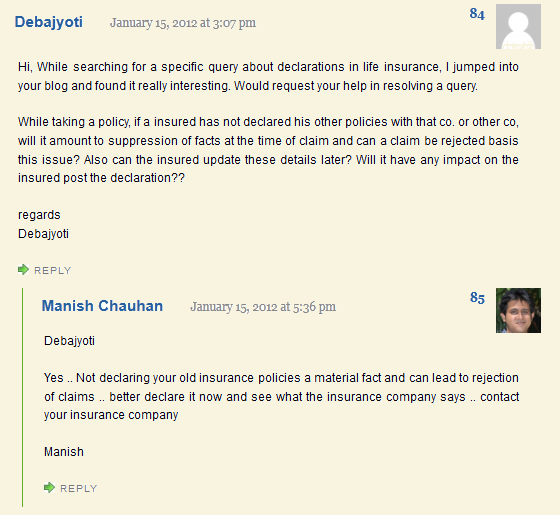What happens when husband and wife take equal interest in their financial life? – It helps in creating an ‘awesome’ financial life. Yes! When both create partnership and put efforts, it helps in creating magical results in their financial life. In the world of personal finance, husband and wife is considered as one entity. They both go out, earn money, help each other in elevating their financial life. We would love to share about two of our client’s rather friends who worked together in designing an awesome financial life.
“Nothing great was ever achieved without enthusiasm.” – Ralph Waldo Emerson
Financial Success of Jassi and Priya
We always tell our clients to live their financial life in a way such that it inspires others. Personal finance is not at all personal if you are confident to share your financial life with the world. It can have results, it will have mistakes but the point is you are proud of the way you live your financial life. This video is of Jassi’s and Priya’s success, we simply played role of a catalyst.
We really want each and every Jagoinvestor reader to create such videos so that we can inspire everyone to live a good financial life. The lesson is if they can do it you can do it too. They really took the Financial Coaching with an open mind and heart, they got on calls on time and are very good receivers. It is their victory that we would like to celebrate it with the world. We asked them to record how they felt after working with us and share it with others, have a look at the video below (youtube link)
Find more about Jagoinvestor Services
Did you listen to their sharing? Did you notice their high enthusiasm and excitement level that they carry with them for their financial life? Did you see how they are on the same page, Did you see how they have created partnership as a couple. Don’t see this video as how great our service is, but really listen to the enthusiasm this couple has shown in their sharing what they created in their financial life. Jassi shared with me once that this video was created in one take and when you see you can experience that it is straight from their heart.
This sharing is really straight from the heart and it is something we would love to share with as many people we can. They are an example that if both husband and wife get together financial success is bound to happen.
May be it’s NOT your cup of tea
May be you think personal finance is not your cup of tea and you do not like to take interest in financial matters. It is not possible that you understand each and everything about finances but at least you can always support your partner when he/she is trying to improve the overall financial life. I like action movies and my wife likes watching romantic movies. I would join her for romantic movies even though I don’t like watching them. It is really not about movies it is about taking interest in those matters which are of interest to your partner. I love reading and my wife hates reading books. From past 1 month she has started reading books, in fact she completed one book which she started and she said she is enjoying reading.
We really have the power to generate interests in our partner if we want to. We can slowly enroll them into financial matters or any matter that we think are important for building a strong future. No need to force or put any compulsion, the more you demonstrate and enjoy something the more they will be keen to join. Take the risk of sharing with your spouse to take interest in financial matters the maximum they will say is NO to you but at least give an honest try to it, give a loving invitation to join you in creating a strong financial future.
Respect your co-pilot
One of the experiences I had was when a woman (one of our client) who got in touch with us for basic financial planning. Initially she gave only her data to us as her husband was not taking any interest in financial matters; he even refused to provide his details. When we delivered the plan to her she showed the same to her husband and he slowly started showing interest in financial matters. I could see how committed the lady was for their financial future. They decided to pay us once again to get a new plan which had combined data of both of them. I could see that this was a golden opportunity for this couple; this moment can be a moment of change for them. I agreed to re-do their collective finances but instead of financial planning I enrolled them in to doing financial coaching.
They agreed and we started the process. On every call wife was a stand for her husband and with each call husband started taking interest in financial matters. He started sharing what needs to be done to take their financial life to the next level, where they need to bring improvements, he started doing the home work that I would give, and every coaching conversation was received by him with an open heart and mind. They really started enjoying the process of wealth creation. They could see that if they play together in their financial life they can achieve anything that they want. Husband and wife are one entity, they hold common vision. I could share with the husband how lucky he is to get such committed wife in his life and to really see her as co-pilot in driving their financial life.
Conclusion
This magic is waiting for you and it can happen in your financial life too. Forward this article to your spouse if you want their 100% participation in your financial life. If your spouse is taking equal interest than its time for acknowledgement and to celebrate your partnership. If you need external help go to some planner or a financial coach, schedule a meeting and really take your financial life to the next level. Lastly if you are single you can create similar partnership with your siblings or someone you really trust.
This week action
- Sit with your spouse and create your financial future
- Acknowledge your spouse for being with you in your financial ups and downs
- Take one action together in your financial life and share with us the outcome



 There was a time when having 6-8 credit cards was a commonly practiced trend and something to show off, now you will pay for it! A lot of credit cards and loans above a “natural” limit is a big negative thing. That shows credit hunger and an extreme dependence on credit in your life. It shows that your life is too much dependent on external credit. Lets say you have two friends Ajay and Robert. Ajay asks for some credit from 2 people in whole year and then asks you for another Rs X and you have good friendship with him, I am sure you will think once and then may be give the money to him. But on the other hand imagine Robert who has taken a credit from 8 people in your office and 2 other people outside office, then when he comes to you and asks for even Rs X/2 amount, you will think 5-10 times before giving it to him. What kind of feelings you will be having in mind? What all doubts will be there in your mind? Some thing same happens in the loan industry, if you have more than “required” or acceptable limit of credits, it badly affects your score. Your score reduces point by point each month.
There was a time when having 6-8 credit cards was a commonly practiced trend and something to show off, now you will pay for it! A lot of credit cards and loans above a “natural” limit is a big negative thing. That shows credit hunger and an extreme dependence on credit in your life. It shows that your life is too much dependent on external credit. Lets say you have two friends Ajay and Robert. Ajay asks for some credit from 2 people in whole year and then asks you for another Rs X and you have good friendship with him, I am sure you will think once and then may be give the money to him. But on the other hand imagine Robert who has taken a credit from 8 people in your office and 2 other people outside office, then when he comes to you and asks for even Rs X/2 amount, you will think 5-10 times before giving it to him. What kind of feelings you will be having in mind? What all doubts will be there in your mind? Some thing same happens in the loan industry, if you have more than “required” or acceptable limit of credits, it badly affects your score. Your score reduces point by point each month.